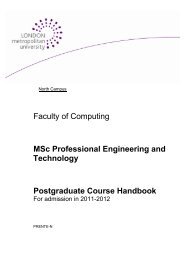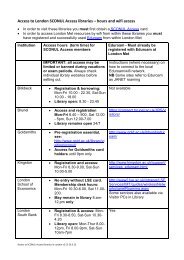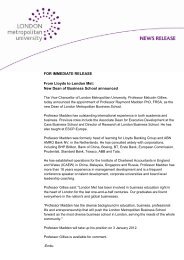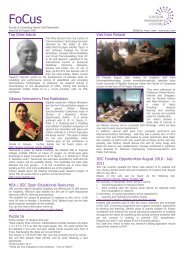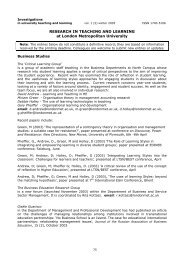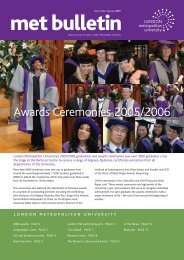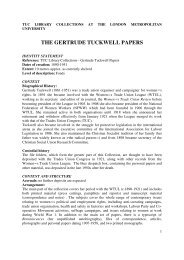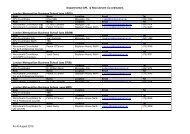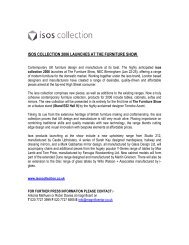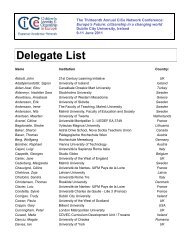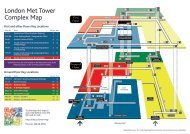Developing practice-based research with persona dolls for
Developing practice-based research with persona dolls for
Developing practice-based research with persona dolls for
Create successful ePaper yourself
Turn your PDF publications into a flip-book with our unique Google optimized e-Paper software.
<strong>Developing</strong> Practice-Based Research 7<br />
process of practitioner reflection. The realisation of value is<br />
ultimately a matter of <strong>persona</strong>l judgement in specific situations and<br />
is open to reinterpretation. In reflective <strong>practice</strong>, practitioners<br />
continually reinterpret their own beliefs and values in the process of<br />
reflection in and on action (Elliott 1989). In some cases <strong>practice</strong><strong>based</strong><br />
<strong>research</strong> is remedial <strong>research</strong> to retrace the balance in the<br />
explored and disturbed class community. Applications <strong>with</strong> Persona<br />
Dolls can be a useful tool <strong>for</strong> a <strong>practice</strong>–<strong>based</strong> <strong>research</strong>er.<br />
Inquiry component: use a magnifying glass!<br />
Inquiry is stimulated by confrontation <strong>with</strong> reality or <strong>with</strong> a problem.<br />
Knowledge results from the inquiry. Practice-<strong>based</strong> <strong>research</strong> is <strong>based</strong><br />
on an event on which an individual can react to or puzzle over – a<br />
problem to be solved. Practice <strong>based</strong> <strong>research</strong> is remedial <strong>research</strong>.<br />
Having identified and exposed bias or injustice in the classroom,<br />
teachers turn their attention to rectifying the imbalance. Means like<br />
Persona Dolls could be active agents <strong>for</strong> the cultivation of virtues<br />
and viewpoints in the world of the child. These educational toys<br />
were used to revisit previous events, that had either been omitted by<br />
children or assigned them stereotypical positions.<br />
One of the challenges of <strong>practice</strong>–<strong>based</strong> <strong>research</strong> is<br />
conceptualization. How can a <strong>practice</strong>–<strong>based</strong> <strong>research</strong>er<br />
conceptualise inquiry so that they recognise that knowledge is<br />
constrained by conditions confronted as external realities, not of our<br />
own making?<br />
The visual component: don’t <strong>for</strong>get your camera!<br />
Recording visual data helps to construct a greater awareness <strong>for</strong><br />
<strong>practice</strong>-<strong>based</strong> <strong>research</strong>. Educators and teachers must express their<br />
approaches, but also pupils and adults <strong>with</strong> disabilities require and<br />
deserve a <strong>for</strong>um where they can explain their problems, wishes and<br />
expertise.<br />
Focussing on the class community through the lens of the camera<br />
encourages and empowers the teacher, giving them self esteem, and<br />
others stimulation. Products are built on knowledge in action,<br />
through a holistic bottom-up approach. Indicators and issues of<br />
professional identity that contribute to innovatory <strong>practice</strong> must<br />
become everyday topics. We need to awaken the empathy and<br />
empowerment that will help counter cultures of ignorance. Visual<br />
data will not only illustrate the policy of a school (such as cooperative<br />
learning) but will also better in<strong>for</strong>m the wider community<br />
about how children react to new inputs and children’s own designs<br />
of the world of play and thought (Verkest 2007).<br />
This participatory approach generates contextualising or storytelling.<br />
Videos give voice to individual and collective experience. Schools



